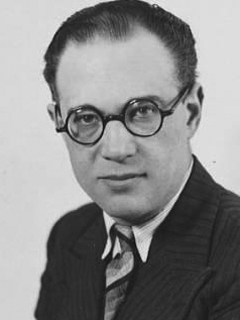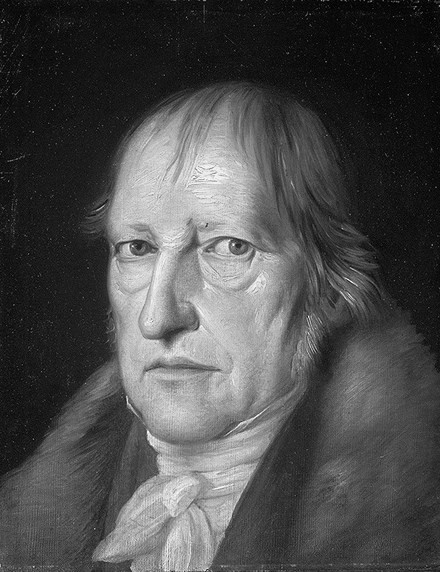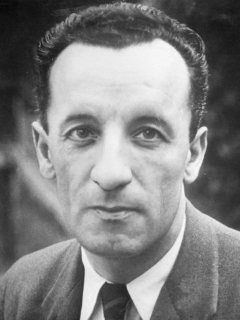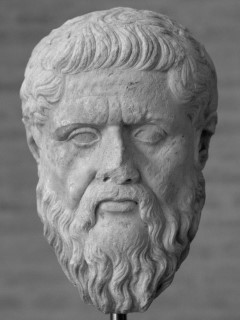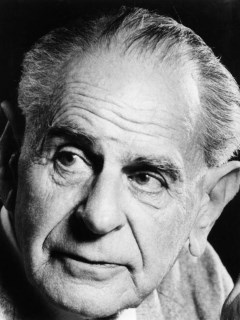Joseph Kockelmans
1923-2008
(2004). The twofold task in working out the question of being: Reflections on method (Being and time, sections 5-7, pP. 15-39). In D. Moran, & L. Embree (Eds.). Phenomenology: Critical concepts in philosophy I (pp. 130-154). London: Routledge.
(2002). Ideas for a hermeneutic phenomenology of the natural sciences II: on the importance of methodical hermeneutics for a hermeneutic phenomenology of the natural sciences. Dordrecht: Springer.
(2002). On the interpretive nature of Hertz's mechanics. In B. Babich (Ed.). Hermeneutic philosophy of science, van Gogh's eyes, and God (pp. 97-115). Dordrecht: Springer.
(2000). Introduction. In O. K. Wiegand, R. J. Dostal, L. Embree, J. Kockelmans, & J. N. Mohanty (Eds.). Phenomenology on Kant, German idealism, hermeneutics and logic (pp. 1-24). Dordrecht: Springer.
with Wiegand, O.K. , Dostal, R.J. , Embree, L. , Mohanty, J.N. (eds) (2000). Phenomenology on Kant, German idealism, hermeneutics and logic: philosphical essays in honor of Thomas M. Seebohm. Dordrecht: Springer.
with Embree, L. , Edie, J.M. , Ihde, D. , Schrag, C. (1997). United States of America. In L. Embree (Ed.). Encyclopedia of phenomenology (pp. 718-724). Dordrecht-Boston-London: Kluwer.
(1997). Existentialism. In L. Embree (Ed.). Encyclopedia of phenomenology (pp. 209-213). Dordrecht-Boston-London: Kluwer.
(1997). Hermeneutic vs. empiricist philosophy of science. In D. Ginev, & R. S. Cohen (Eds.). Issues and images in the philosophy of science (pp. 191-215). Dordrecht: Springer.
(1997). Natural science in hermeneutical perspective. In L. Embree (Ed.). Encyclopedia of phenomenology (pp. 477-480). Dordrecht-Boston-London: Kluwer.
(1997). On the hermeneutical nature of modern natural science. In R. P. Crease (Ed.). Hermeneutics and the natural sciences (pp. 41-55). Dordrecht: Springer.
(1997). On the hermeneutical nature of modern natural science. Man and World, 30 (3), 299-313. https://doi.org/10.1023/A:1004259519066.
(1997). Philosophy of psychology. In L. Embree (Ed.). Encyclopedia of phenomenology (pp. 531-535). Dordrecht-Boston-London: Kluwer.
(1996). Association in Husserl's phenomenology. In B. Wachterhauser (Ed.). Phenomenology and skepticism (pp. 63-85). Evanston, Ill.: Northwestern University Press.
(1995). Reflections on the "foundations" of psychology and psychoanalysis. In B. Babich (Ed.). From phenomenology to thought, errancy, and desire (pp. 527-545). Dordrecht: Springer.
(1994). Edmund Husserl's phenomenology. West Lafayette: Purdue University Press.
(1993). Ideas for a hermeneutic phenomenology of the natural sciences. Dordrecht: Springer.
(1992). From necessity to possibility. In P. Sars, C. Bremmers, & K. Boey (Eds.). Eros and Eris (pp. 119-131). Dordrecht: Springer.
(1992). Toward a hermeneutic theory of the history of the natural sciences. In L. Hardy, & L. Embree (Eds.). Phenomenology of natural science (pp. 237-264). Dordrecht: Springer.
(1989). Experience and critical reflections. In E. F. Kaelin, & C. Schrag (Eds.). American phenomenology (pp. 158-164). Dordrecht: Kluwer.
(1989). Idealization and projection in the empirical sciences: Husserl vs. Heidegger. History of philosophy quarterly, 6, 365-380.
(1989). On the meaning of the transcendental dimension of philosophy. In T. Müller, & T. M. Seebohm (Eds.). Perspektiven transzendentaler Reflexion (pp. 27-50). Bonn: Bouvier.
(1988). Zeit und Sprache im Ereignis. Phänomenologische Forschungen, 21, 51-81.
(ed) (1988). Hermeneutic phenomenology: Lectures and essays. Washington DC: University Press of America.
(1987). Husserl's original view on phenomenological psychology. In J. Kockelmans (Ed.). Phenomenological psychology (pp. 3-29). Dordrecht: Springer.
(ed) (1987). Phenomenological psychology: the Dutch school. Dordrecht: Springer.
(1986). On the hermeneutic dimensions of the natural sciences. Études phénoménologiques, 2 (3), 33-81. https://doi.org/10.5840/etudphen1986237.
(1986). Phenomenological conceptions of the life-world. In A. Tymieniecka (Ed.). The moral sense in the communal significance of life (pp. 339-355). Dordrecht: Reidel.
(1985). Heidegger on art and art works. Dordrecht: Springer.
with Seebohm, T.M. (eds) (1984). Kant and phenomenology. Washington DC: University Press of America.
(1983). On the impact of the human sciences on our conception of man and society. In A. Tymieniecka (Ed.). The phenomenology of man and of the human condition (pp. 51-76). Dordrecht: Reidel.
(1983). The foundations of morality and the human sciences. In A. Tymieniecka, & C. Schrag (Eds.). Foundations of morality, human rights, and the human sciences (pp. 369-386). Dordrecht: Reidel.
(1979). Reflections on Lakatos' methodology of scientific research programs. In G. Radnitzky, & G. Andersson (Eds.). The structure and development of science (pp. 187-203). Dordrecht: Springer.
(1978). Reflections on social theory. Human Studies, 1 (1), 1-15. https://doi.org/10.1007/BF02132600.
(1977). Husserl and Kant on the pure ego. In F. Elliston, & P. Mccormick (Eds.). Husserl (pp. 269285). Notre Dame: University of Notre Dame Press.
(1976). Hermeneutic phenomenology and the science of history. Phänomenologische Forschungen, 2, 130-179.
(1976). On the meaning and function of experience in Husserl's phenomenology. In U. Guzzoni (Ed.). Der Idealismus und seine Gegenwart (pp. 297-317). Hamburg: Meiner.
(1975). Empirische, phänomenologische und hermeneutische Psychologie: Gedanken zu einer mehrdimensionalen Bestimmung des Problems der Psychologie. In A. Métraux, & C. F. Graumann (Eds.). Versuche über Erfahrung (pp. 35-49). Bern: Huber.
(1973). Heidegger on time and being. In E. Ballard, & C. E. Scott (Eds.). Martin Heidegger (pp. 55-76). Dordrecht: Springer.
(1973). In memoriam professor Aron Gurwitsch. Man and World, 6 (4), 441-444. https://doi.org/10.1007/BF01246603.
(1973). Theoretical problems in phenomenological psychology. In M. Natanson (Ed.). Phenomenology and the social sciences Volume 1 (pp. 225-280). Evanston, Ill.: Northwestern University Press.
(1972). Phenomenologico-psychological and transcendental reductions in Husserl's "Crisis". In A. Tymieniecka (Ed.). The later Husserl and the idea of phenomenology (pp. 78-89). Dordrecht: Reidel.
(1972). Phenomenologico-psychological and transcendental reductions in Husserl's "Crisis". In A. Tymieniecka (Ed.). The later Husserl and the idea of phenomenology (pp. 78-89). Dordrecht: Reidel.
(1971). World-constitution. In A. Tymieniecka (Ed.). Analecta Husserliana (pp. 11-35). Dordrecht: Reidel.
(1970). Language, meaning, and ek-sistence. In F. J. Smith (Ed.). Phenomenology in perspective (pp. 94-121). Dordrecht: Springer.
(1970). The mathematization of nature in Husserl's last Krisis-publication. In T. Kisiel, & J. Kockelmans (Eds.). Phenomenology and the natural sciences (pp. 45-67). Evanston, Ill.: Northwestern University Press.
with Kisiel, T. (eds) (1970). Phenomenology and the natural sciences: Essays and translations. Evanston, Ill.: Northwestern University Press.
with Anderson, J. , Schrag, C. (1968). Editorial. Man and World, 1 (2), 163-163. https://doi.org/10.1007/BF01258399.
with Anderson, J. , Schrag, C. (1968). Editorial. Man and World, 1 (1), 3-9. https://doi.org/10.1007/BF01252589.
(1967). A first introduction to Husserl's phenomenology. Pittsburgh: Duquesne University Press.
(1967). Edmund Husserl's phenomenological psychology: A historico-critical study. Pittsburgh: Duquesne University Press.
(1967). Husserl's original view on phenomenological psychology. In J. Kockelmans (Ed.). Phenomenology (pp. 418-449). Garden City: Doubleday.
(1967). Husserl's transcendental idealism. In J. Kockelmans (Ed.). Phenomenology (pp. 183-193). Garden City: Doubleday.
(1967). Intentional and constitutive analysis. In J. Kockelmans (Ed.). Phenomenology (pp. 137-146). Garden City: Doubleday.
(1967). What is phenomenology? Some fundamental issues of Husserl's phenomenology. In J. Kockelmans (Ed.). Phenomenology (pp. 24-36). Garden City: Doubleday.
(ed) (1967). Phenomenology: the philosophy of Edmund Husserl and its interpretation. Garden City: Doubleday.
(1966). Phenomenology and physical science: An introduction to the philosophy of physical science. Pittsburgh: Duquesne University Press.
(1964). De fenomenologische psychologie volgens Husserl: Een historisch-kritische Studie. Tielt-Den Haag: Lannoo.
(1964). L'objectivité des sciences positives d'après le point de vue de la phénoménologie. Archives de philosophie, 27, 339-355.
(1963). Edmund Husserl: Een inleiding tot zijn fenomenologie.. Tielt-Den Haag: Lannoo.
(1962). Phaenomenologie en natuurwetenschappen: Een inleiding in de wijsbegeerte der natuurwetenSchappen. Haarlem: De Erven.
(1960). Eenheid en verscheidenheid in de wetenschap volgens het standpunt der phaenomenologie. Tijdschrift voor filosofie, 22, 331 -361.
(1960). Het standpunt van de phaenomenologie met betrekking tot de verhouding tussen zijn en verschijnen. Tijdschrift voor filosofie, 22, 544-587.
(1958). Realisme - idealisme en Husserls phaenomenologie. Tijdschrift voor filosofie, 20, 395-441.
(). Toward an interpretative or hermeneutic social science. Graduate Faculty Philosophy Journal, 5, 73-96. https://doi.org/10.5840/gfpj1975514.



